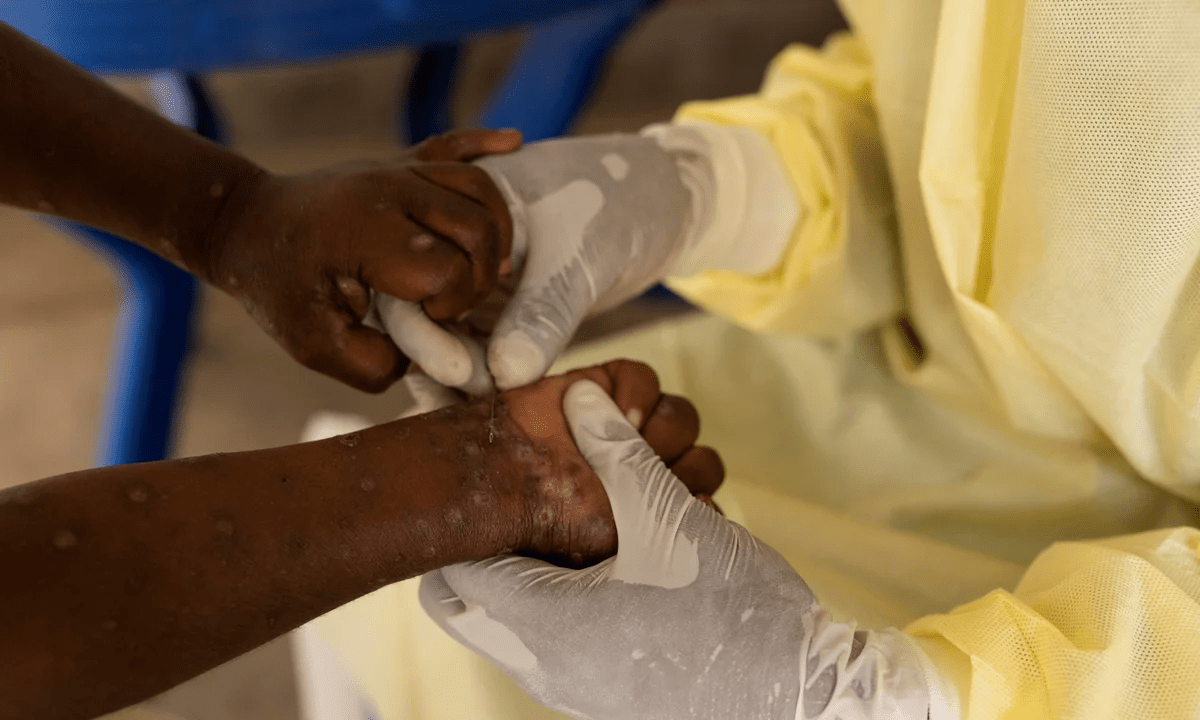
WHO Declares Mpox Outbreak in Africa a Global Health Emergency as Tedros Adhanom Ghebreyesus and Jean Kaseya Call for Immediate Action
Fiona Nanna, ForeMedia News
7 minutes read. Updated 10:20AM GMT Thurs, 15August, 2024
The World Health Organization (WHO) declared the escalating mpox outbreak in Africa a global health emergency, highlighting the urgent need for international intervention. This declaration, made by WHO Director-General Tedros Adhanom Ghebreyesus, follows an emergency committee meeting addressing the rapid spread of the virus and its potential to cross international borders.
The Africa Centers for Disease Control and Prevention (Africa CDC) had already elevated mpox to a public health emergency earlier this week, underscoring the severity of the situation. According to recent data, Africa has reported over 14,000 cases and 524 deaths from mpox this year, surpassing last year’s figures. The Democratic Republic of Congo (DRC) remains the epicenter of the outbreak, accounting for more than 96% of the cases and fatalities.
What is Mpox?
Mpox, previously known as monkeypox, was first identified in 1958 during outbreaks of a pox-like disease in monkeys. Traditionally confined to central and West Africa, where human cases were linked to contact with infected animals, mpox gained global attention in 2022. This was when it was first documented to spread through sexual contact, leading to outbreaks in over 70 countries previously unreported for mpox.
Mpox belongs to the same virus family as smallpox but typically causes milder symptoms, including fever, chills, and body aches. Severe cases can result in lesions on the face, hands, chest, and genitals.
Current Situation in Africa
The situation in Africa has become increasingly alarming. The Africa CDC reported a 160% increase in cases and a 19% rise in deaths compared to the previous year. The outbreak has now spread to at least 13 African countries, with the DRC experiencing a significant surge in a new, potentially more transmissible variant of mpox.
This new variant, identified in a Congolese mining town, is associated with a higher mortality rate and different symptomology, including lesions on the genitals. This makes it more challenging to detect and control, contributing to its rapid spread.
Recent reports also indicate the presence of mpox in four East African countries—Burundi, Kenya, Rwanda, and Uganda—linked to the outbreak in the DRC. Meanwhile, less dangerous strains have been reported in the Ivory Coast and South Africa, reminiscent of the 2022 global outbreak.
What Does the Emergency Declaration Mean?
The WHO’s emergency declaration aims to galvanize global action and resources to combat the outbreak. Despite previous global emergencies having mixed responses, this declaration is intended to catalyze support from donor agencies and countries.
Africa CDC Director General Dr. Jean Kaseya emphasized the need for immediate action to mobilize resources and support. “Current control strategies are insufficient, and there is an urgent need for enhanced resources,” he said.
Comparing Current and Past Outbreaks
The 2022 global mpox outbreak predominantly affected gay and bisexual men and was spread through close contact. In contrast, the current outbreak in Africa is significantly impacting children under 15, who now constitute over 70% of cases and 85% of deaths in the DRC.
The ongoing crisis is exacerbated by overcrowded refugee camps in Congo, where unsanitary conditions and existing health crises like malnutrition, measles, and cholera further strain the healthcare system.
Efforts to Contain the Outbreak
The 2022 outbreak was mitigated in wealthier nations through vaccination and public health measures. However, Africa faces a severe shortage of vaccines and treatments. Experts advocate for the rapid deployment of vaccines, including smallpox vaccines, to control the outbreak.
The WHO has allocated $1.45 million from its emergency fund to support the response in Africa but estimates a need for an initial $15 million to adequately address the crisis. Discussions are ongoing with donors regarding vaccine donations, with some support already provided by Britain and the U.S.
For further updates on the mpox outbreak and international response, check out Reuters’ detailed coverage and The Guardian’s analysis.

